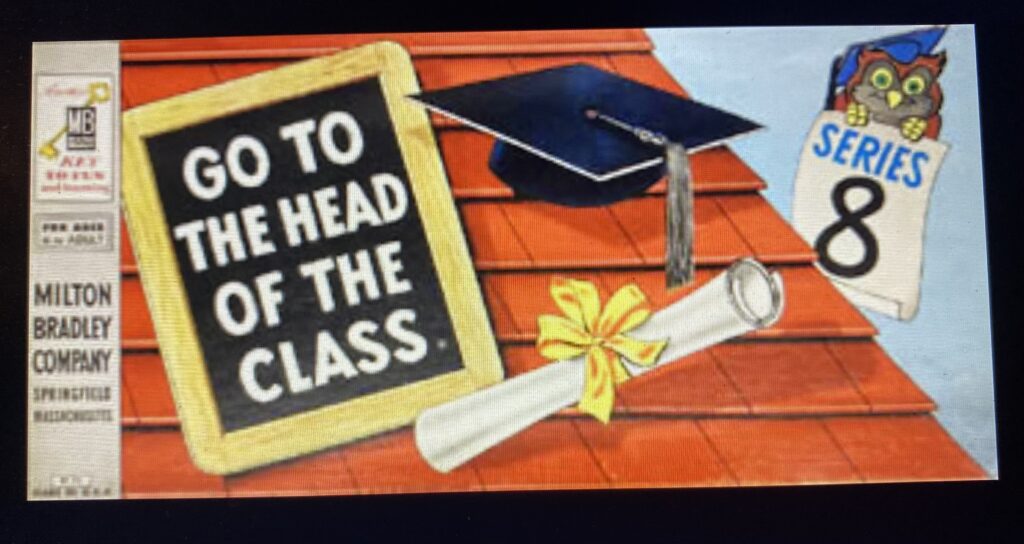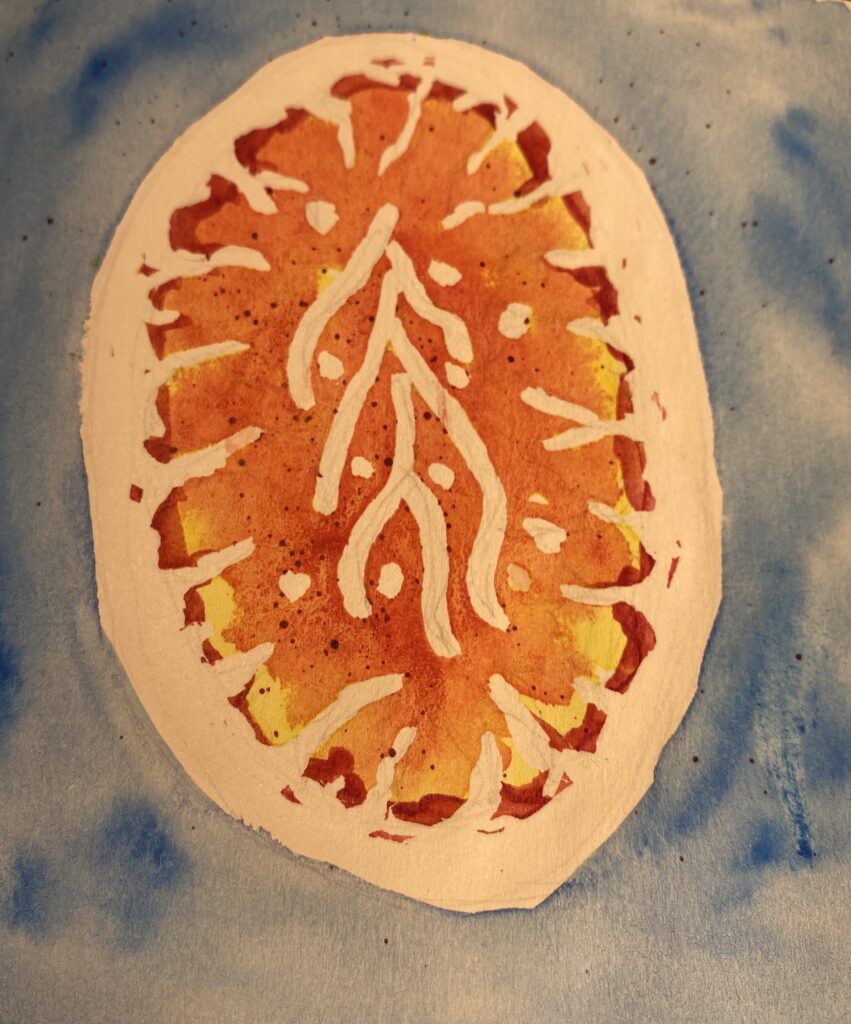“A mind,” they used to say, “is a terrible thing to waste.” I’d add: It’s also a terrible thing to lose. This is what I’ve been worrying about lately. Fears of losing my mind have been weighing heavily on my mind. I can’t seem to remember new things — especially words in the Spanish language, which is perennially new to me. Although I try to study Spanish every day, for example, my formerly trusty brain refuses to cooperate; I can’t seem to form sentences. It’s become alarming.

Ever since I was a kid, playing the then-popular roll-and-move board game “Go to the Head of the Class” with my siblings, I’ve been trying my best to use and stretch my mind to the max. One of the small cardboard tokens in this game bore the image of a funny-looking blond girl with long bangs and braids who wore big owl-like glasses and a super-serious expression.
She looks just like me!, I thought at the time. So I always chose her as my student-stand-in and made sure she went to the head of each class and won all the games. My siblings, of course, resented this. My mother, Lee, wanted all of her girls to be, above all, pretty. But I, “Four Eyes,” as my brother called me, rebelled. I was determined to be smart – and to spend the rest of my life striving to go to the head of all my classes.
Fast forward to this past week and the MRI I had last Monday, which confirmed my fears: My brain is indeed betraying me now, at the age of eighty. Not only has it shrunken considerably (How can this BE!, I shout to myself, after all these decades of reading and learning and thinking, in an effort to expand it?!), but there are other issues even worse — such as lesions and constricted arteries, and white blobs (not a medical term) showing I’ve had a series of mini strokes. But I’m getting ahead of myself….
First, the brain MRI. This was a first for me. If you’ve never had one, I’ll try to describe the experience: You lay flat on your back on a narrow metal slab, while a plastic, cage-type thing is secured over your head. Then the slab slides head-first into a huge white tunnel, where you’re blasted with noise for an hour and ten minutes.
Pedro, the angelic young man who guided me through this harrowing process, cautioned me not to move a muscle. When I told him I have claustrophobia, he said they could get a doctor to come and give me something to help me “sleep,” but this would take longer and cost more. So I opted to be brave. Pedro gave me a “panic button” to press if need be, but I was stubbornly determined not to use it.
Inside the tunnel, my head being pummeled by mind-blowing noise, I created this brain game: I pretended I was in Gaza, trapped under the rubble of my apartment building, which had just been bombed. I couldn’t move. I couldn’t cry out. The noise – the incessant hammering and drilling noises that were truly giving me a killer headache – was caused by the men who were attempting to rescue me as well as the others also similarly trapped.
I kept repeating to myself: You must be patient. This may take a long, long time. The men are doing everything they can to get you out. Don’t move – it would only make things worse. Don’t cry. If you are meant to be rescued, it will happen. You must be brave!
When sweet Pedro finally “rescued” me, I announced to him in a couple of Spanish words I happened to recall: “Soy valiente!”
“Yes,” he said in English, “you are brave!”

(Above: My watercolor rendition of my MRI — not to be confused with the real thing.)
In a few days I had the results, and my wonderful young doctor took her time to explain it all to me. I was relieved to learn it’s not Alzheimer’s nor dementia nor a brain tumor. My mother’s first and last MRI in 1982 revealed a malignant brain tumor, the size of a lemon, which led to her death at the age of sixty-nine from glioblastoma. I’d feared my MRI might show the same. Among her first symptoms was trouble finding words and forming sentences…
But my MRI last week revealed only relatively mild issues that need to be addressed and dealt with before they become worse. My doctora prescribed medication, supplements, and a physical therapist for brain exercises. I’m now following through.
Of course, being me, I’ve been doing some serious online research into brain health and what we can do to improve it – many of which I already do. Here’s a partial list:
- Reading (especially good books)
- Writing (such as daily journaling)
- Painting (I dabble in watercolor painting every evening)
- Music (listening and playing)
- Dancing (even alone at home)
- Puzzles (such as jigsaws) and word games (such as Scrabble)
- Gardening (I have a small terrace garden)
- Socializing (I have lunch with friends once a week)
- Strength training (using weights)
- Physical exercise (I walk an average of 3 miles a day)
- A healthy diet (of course!)
And I found a number of short, helpful YouTube videos showing exercises that are designed to improve cognition. Here’s a favorite:
Now that I’m eighty, which is officially “old,” I realize I must face new health challenges head-on and wrap what’s left of my shrinking brain around them. I have no fear of death – I suspect it might turn out to be the door to a great adventure in a whole new realm – but I feel I must do all I personally can to bravely and healthfully live in this body, on this earth, for as long as I’m meant to be here.
